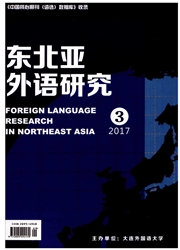

 中文摘要:
中文摘要:
日本马克思主义文艺理论在20世纪前半期被大量译介到中国。一直以来,相关研究主要是在无产阶级文学运动的框架中展开的。但这样的研究不仅排斥了无产阶级文学运动之前和之后的相关理论,也忽视了其与现代派文学的关系,存在很大局限性。因此,本文没有沿用一般文学史上的"无产阶级文艺理论"一词,而使用"马克思主义文艺理论"的概念,力图从更广的角度进行把握。本文分三个阶段宏观梳理了日本马克思主义文艺理论在中国的译介情况,并在此基础上从历史社会文化语境的角度揭示了其影响的广泛性和多样性。
 英文摘要:
英文摘要:
During the first half of the 20th century, Japan's Marxism literary theory was intensively introduced to China. By now, related studies have been focused on the development of Proletarian Literature Movements. But such researches have many limitations. Not only have they excluded the related literary theories appearing before and after Proletarian Literature Movements, but also they have neglected the relationship between Proletarian Literature Movements and Modernism. For this sake, instead of using the phrase "Proletarian literature theory" which is frequently referred to in literary history, here the concept of "Marxism literary theory" is chosen so that much more aspects can be explored from this subject. This article combs the translation and introduction situation of Japan's Marxism literary theory in China in three phases, and reveals the universality and variety of its influence in the context of socio-history and culture.
 同期刊论文项目
同期刊论文项目
 同项目期刊论文
同项目期刊论文
 期刊信息
期刊信息
